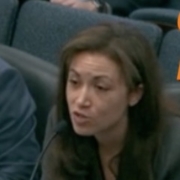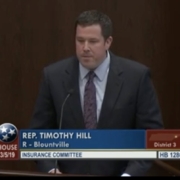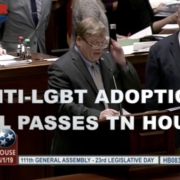TN GOP Kills Clemmons Net Neutrality Bill, Comcast and AT&T Get Their $$ Worth
Net neutrality is an issue that extends far beyond Tennessee, but could have major implications for Tennessee business owners. Under current state laws, there are no net neutrality rules.
With net neutrality rules, major broadband internet providers like Comcast Xfinity and AT&T are classified as “common carriers.” The distinction means internet service providers must treat all internet content and data equally – “net neutrality.”
Functionally, net neutrality means that internet providers are not allowed to block websites they don’t like or are owned by a competitor. They also cannot charge more to subscribers for using data hogs like YouTube and Netflix over Twitter or local news sites.
For small business owners, the most important net neutrality protection may be that common carrier internet providers would be prohibited from giving preferential treatment – like faster speed – to one website over another. Think: Amazon.com and Walmart.com, who might be willing to pay a premium for internet speed, versus your online craft supply shop.
While there are currently no net neutrality rules in place in Tennessee, it’s unclear whether large internet providers will or have begun making changes to boost profits. Many are still hoping that broadband deals will remain on the table, to help everyone maintain access to the world wide web
To ensure Tennessee small business owners and consumers would always have access to a fair, equal internet content, Rep. John Ray Clemmons, D-Nashville, District 55, introduced the Tennessee Neutrality and Internet Consumer Protection Act.
Unfortunately, the proposal, HB 1060, died this week in the Utilities Subcommittee. You can watch the full debate here.
HIGHLIGHTS:
Chairman Pat Marsh asked Clemmons if any companies in Tennessee were blocking and throttling, to which John Ray responded that they were not, pointing out that this would be a way to be “progressive” about the issue and that since they weren’t that would mean they weren’t getting hurt by the bill.
Rep. Clark Boyd suggested it should remain a federal issue, prompting Leader Karen Camper to point out that some (particularly Republican) members use that excuse when it’s convenient:
“I think members believe that when it’s something that’s important to them.”
According to campaign contributions, AT&T gave $81,500 to 86 members of the Tennessee General Assembly in 2018, including five of the seven members of the Utilities Subcommittee. In 2018, Comcast gave $50,850 to 50 members of the General Assembly, including six of the seven members of the Utilities Subcommittee.
How they voted: Utilities Subcommittee, March 13;
On a voice vote, Nays prevailed. Representatives voting no:
Rep. Pat Marsh, R-Shelbyville, District 62
Rep. Clark Boyd, R-Lebanon, District 46
Rep. Kent Calfee, R-Kingston, District 32
Rep. Timothy Hill, R-Blountville, District 3
Rep. Jerome Moon, R-Maryville, District 8
Representatives in support of the bill:
Rep. Karen Camper, D-Memphis, District 87
Rep. Jason Powell, D-Nashville, District 53
Thanks for reading! We’re an independent, reader-supported site that depends entirely on you to help us keep holding our public officials accountable and “Yelling the Truth”, so please consider chipping in a $3, $5, or $10 monthly and we’ll keep telling the stories nobody else will:











